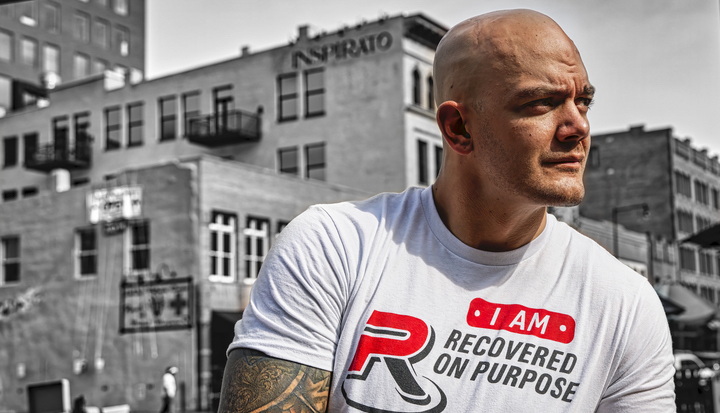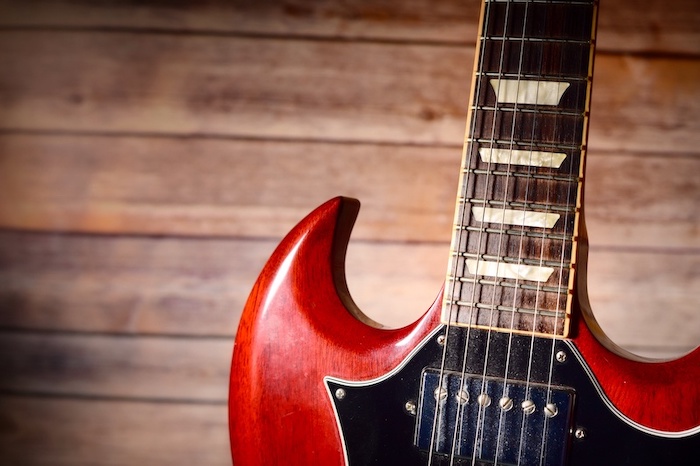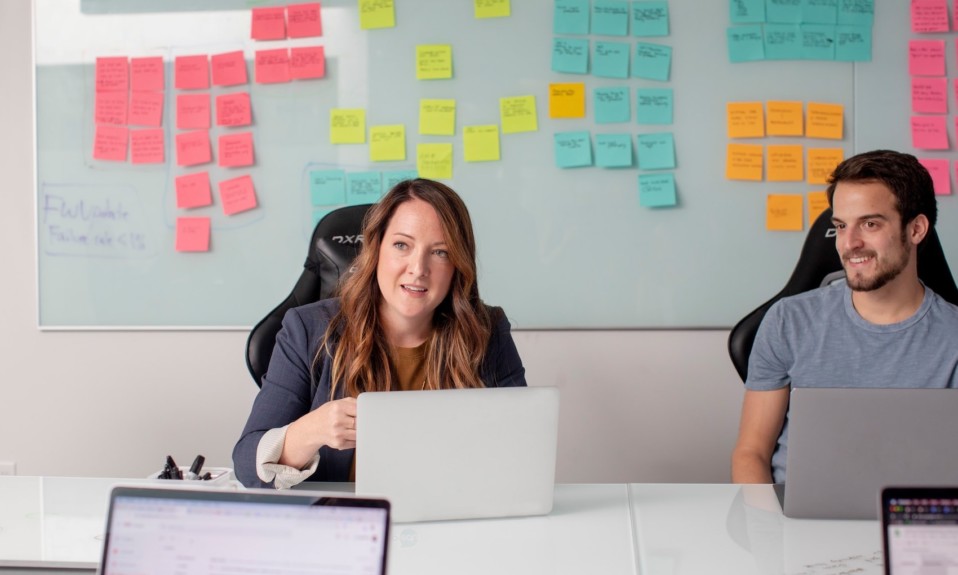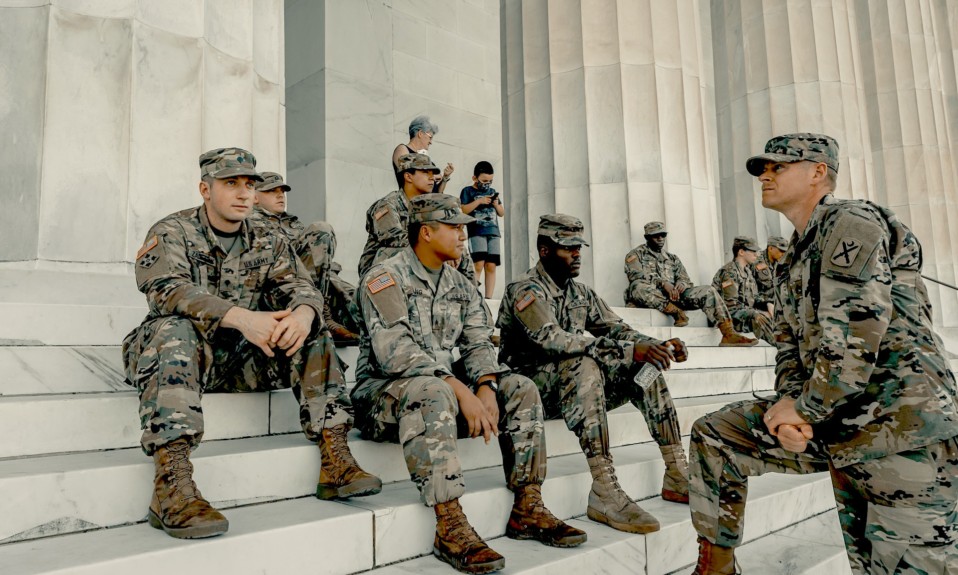The bestselling author and founder of Recovered On Purpose has three simple tips for getting a new lease on life
By Adam Vibe Gunton
I was 26, living in a 2,400-square-foot ranch home 10 minutes from the beach in Central California. I had a girlfriend, a motorcycle, two cars and a dog. My job as a door-to-door DirecTV salesman provided a cool living on about 25 hours a week, so I was able to spend my time doing things I loved: riding that motorcycle, taking my girlfriend out to see thousands of monarch butterflies during mating season, playing poker tournaments, swimming in the ocean and banging heroin.
At this point, my habit of shooting up in my office before going out to work and then shooting up when I got home hadn’t yet taken over my life in such a way that it made me incapable of maintaining this lifestyle. Life was good! But by the time I was 27, I had lost my motorcycle, lost my car, lost my house, lost my job, and my girlfriend left with the dog. I was living in a country-western song.
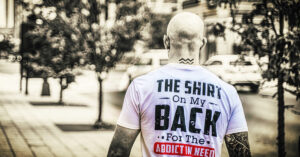
How Did I Get Here?
How is it that we addicts can go from feeling like we have it all to losing everything and everyone in our lives in rapid succession? How is it that we wind up looking around and not knowing how we got here—homeless, kicked out of a homeless shelter (super-homeless) and 60 pounds underweight? I found the answers to these questions in my conversation with my friend Dr. Darlene Mayo on The Recovered On Purpose Show. Dr. Mayo is a neuroscientist and neurosurgeon who has spent decades studying the brain and how it’s wired.
She pointed out that our lives are built on habits—good or bad. What we do every day shapes and forms the future we are creating for ourselves, and no one knows the reality of this better than someone who has struggled with active drug addiction. The daily phone calls to the dope man, the ritualistic way of preparing the drugs for use, the way we ignore every single phone call that comes to us.
Just over three years ago, I found myself at the end of the addict’s road. I had nothing left to give to my addiction—other than my life. I got clean and sober … and began to form some good habits in place of the ones that took everything from me.”
The good news? She told me, “If you are someone who has struggled with addiction, you are excellent at forming habits. I work with many individuals who did not struggle with addiction who struggle to form habits.” As Dr. Mayo and I continued in our conversation, we discussed that an addict in recovery has formed such strong neuro-highways of habits in their brain that if they switch over to good habits, their lives can progress just as quickly as they digressed in their addiction.
Just over three years ago, I found myself at the end of the addict’s road. I had nothing left to give to my addiction—other than my life. I got clean and sober on Nov. 6, 2017. I quit smoking cigarettes on Dec. 5, 2017, on my 30 days clean/sober, and began to form some good habits in place of the ones that took everything from me. I have since run a mile in under six minutes, gained 60 pounds of healthy, lean body mass, published a bestselling autobiography (From Chains to Saved: One Man’s Journey Through the Spiritual Realm of Addiction), built an online following of over 40,000 people and created a seven-figure company employing more than 20 people. And this is only the beginning of a future built on consistent, daily habits.
Three New Habits That Can Change Your Life
Here are the top three habits to start today to rapidly progress in your life in recovery:
Create a Positive Morning Routine and Stick to It
A morning routine is hailed by successful people all over the world as a key to unlocking one’s true potential. It’s used to take control of your day, lower stress levels and gain clarity for what it is you want with your life, your year, your week or even just your day.
You have the power to change your life permanently through implementing a few new positive habits into your daily routine. Wake up with intention, learn with intention and dedicate an hour of intention per day to something you love.”
The best way to form your own morning routine is to think of your ideal morning spent doing things you know are healthy for your mind, body and spirit. This might include waking up a little earlier. That extra bit of time will exponentially change your life.
There are a few things I do every morning in my morning routine: brush my teeth, make my bed, drink lemon-flavored salt water, take my vitamins and supplements, read my Bible, journal and go to the gym. These simple things have built my mental, physical and spiritual health at a rapid rate in my recovery.
I also practice what I call the list of six. Before bed, I write down six things I’m going to do the next morning before the workday starts. The subconscious brain will work on these while we sleep, and when we wake up we will already be ready to accomplish them and win the morning. Sometimes things like meditation, breath work or stretching will be added in to the list of six. Those are all habits I’m beginning to work into my routine, but go at a pace that works for you with this. Pick up a couple things at a time with your morning routine. Choose what you want to do with your morning so you can move the needle forward in your life instead of backward toward your arm.
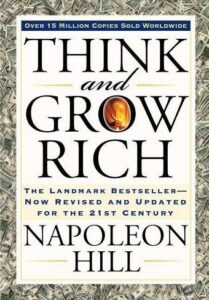
Don’t Shy Away from Learning
Have you heard the saying, “Leaders are readers?” There are so many incredible books out there on any topic you could possibly want to learn about—books like Napoleon Hill’s Think And Grow Rich or Robert Kiyosaki’s Rich Dad Poor Dad or Dale Carnegie’s How To Win Friends and Influence People. These are all classics that are guaranteed to raise the level of your cognitive thinking.
I can hear you now: “But, Adam, I just don’t have time to read.” Or, “I hate to read—my mind doesn’t work like that.” Well, reading is a way to learn and progress beyond your peers. Whether you’re reading 10 pages of a positive nonfiction book or listening to an uplifting podcast, new sources of information will influence your growth.
Spend One Hour Per Day on Something You Love
I was speaking at a conference in Indiana recently, and a man in recovery came up to me after I was on stage and introduced himself. He was teary-eyed and excited to have the chance to tell me the impact a certain habit had on him.
He had recently lost a good friend and mentor, as well as the founder of a nonprofit on whose board he sat, who had passed away from natural causes. He told me he was going through a rough time in his recovery, about six years in, and heard me speaking on an online event about the power of setting aside one hour per day to do something you love. An idea had been circling in his head for some time before this, but he had “never had the time” to do it.
He decided to take one hour per day to actualize his idea of building prayer boxes for the nonprofit. So for one hour a day, he would go into his garage and build prayer box after prayer box with positive messages on each, in honor of the man who founded the nonprofit. Not only did this get him through a time of grief, but these prayer boxes also can now be found at recovery homes, conferences and fellowships around the country.
We overestimate how much one hour will take away from our schedule and grossly underestimate what one hour of intention can create for our lives and countless others.
You have the power to change your life permanently through implementing a few new positive habits into your daily routine. Wake up with intention, learn with intention and dedicate an hour of intention per day to something you love. These three things over the course of a year will enable you to grow into the best version of you whom you’ve ever met.
Adam Vibe Gunton is the founder of Recovered On Purpose, a movement that helps people recovering from addiction tell their stories and inspire future generations to live lives of purpose. Learn more about his movement of recovery.


